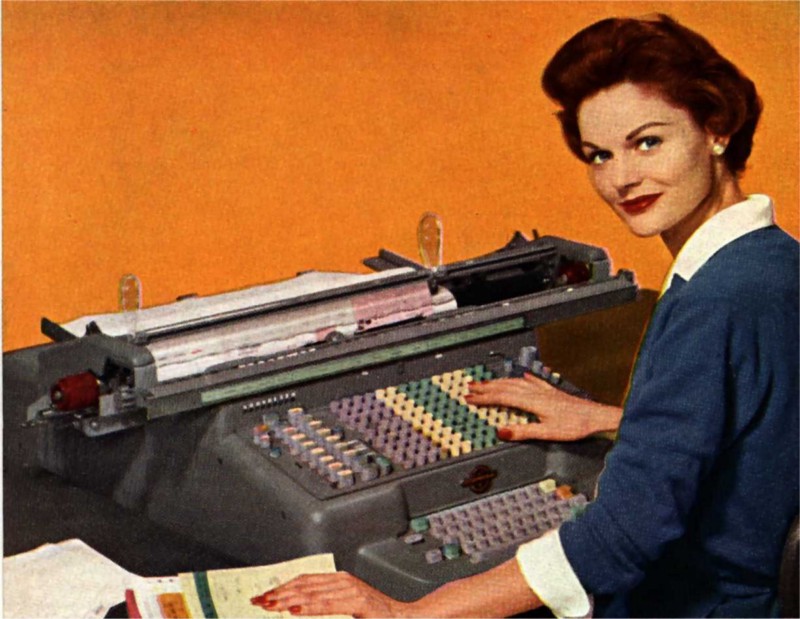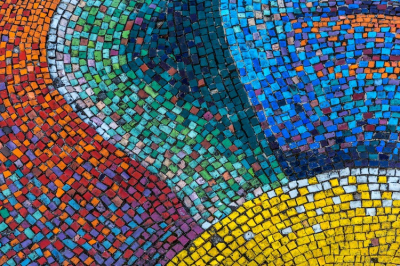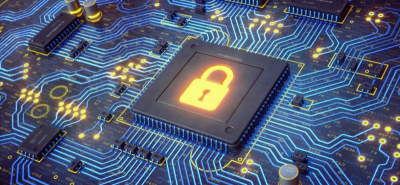
Old book-keeping machine.
The world of transactions and contracts
Our society and the financial markets are based on transactions and contractual agreements among people, companies, banks, states, etc. The exchange of value is a very important part of society. Everybody is able to produce something and needs something else from others. Money became the means of payment. Money is only half of a financial transaction. Exchanging value means that money is exchanged for an item with similar value. Buying goods is an easy exchange where you can fill your shopping basket and pay at the cash desk. There might be more complex exchanges of value that require making a contract. A contract is a record with the agreement details including parties signatures. Transactions and contracts are drivers of the economy and society.
Interaction with friends, partners, and institutions is based on trust. Trust is a scale. Parties often do not trust each other so there must be trusted entities to whom both parties trust. Nowadays, we have a lot of such trusted entities. For example, banks. Banks and other institutions became important players in the economy since they can lend you money, invest, insurance you, etc. If there is a problem and anybody breaks trust, the legal system gets involved and resolves it. As a consequence of increasing importance and wealth, banks and other institutions became very expensive and unreliable middlemen. Their position is strong and many institutions are indispensable. Their goal is to keep the status quo and keep their positions.
Let’s go back to history. As the number of transactions was increasing, accounting was invented. Accounting is the process of recording financial transactions pertaining to a business. The accounting process includes summarizing, analyzing, and reporting these transactions to oversight agencies, regulators, and tax collection entities. The financial statements used in accounting are a concise summary of financial transactions over an accounting period, summarizing a company’s operations, financial position, and cash flows. Banks, companies, and even states started to use a ledger. Thus, institutions can be audited by independent authorities that inspect ledgers. Institutions are motivated to behave honestly since they need people to trust them. Audits of the ledger can verify that everything is correct and there are not frauds in the accounting. Auditors can verify recorded transactions and related contracts. If the audit succeeds then the audited entity is considered as trusted.
The problem of the financial system is that trust is based on ledgers that are maintained by institutions themselves and nobody else except authorized auditors cannot see them. So the audited entities maintain ledgers that are subjects of the audit. We have to trust auditors and believe that they are really independent and do their job well. There is room for fraud or mistakes of individuals on both sides. The audited entity or auditor might fail. The reason is that institutions and auditors are basically centralized units of power. The concept is a bit more trusted due to the division of power. Ordinary people have to believe that audited entities do not cheat and if it is the case then that auditors are honest and diligent enough to find it out. Put it simply, it could be difficult for ordinary people to verify whether authorities do their job well.
As history showed us many times, we should not blindly trust middlemen or even auditors. Blockchain offers us a better solution as it could reduce the cost of trust by a decentralized approach to accounting. Blockchain reduces the possibility to commit fraud and allows instant and cheap audit of a ledger. By extending the concept we could basically reconstruct the current economic structures and create new organizations.
Blockchain is the trust machine. Due to its distributed nature, there is no entity that could conceal fraud or prevent an audit. Blockchain is able to immutably store information that for a user X a state Y is valid at time Z. It is very suitable for keeping ownership information about valuable things. In contrast to traditional ledgers, blockchain is not only a decentralized book-keeper but it can also take care of transactions. Thus, the value can be transferred from a user to a user and it is seamlessly stored in the blockchain right away. It is not the case in the traditional financial world. There are many subsystems and information is often propagated from one subsystem to another. It can be expensive, slow, or inefficient in other ways.
The beauty of blockchain is that the owner really owns assets and nobody, including consensus participants, is able to change that without the appropriate private key. Only the owner might initialize the change of the ownership via a transaction and the network only validates the request and stores the information in the blockchain.
Blockchain solves the problem with the centralization of power. It is achieved by the distribution of trust. Instead of trusting to one central entity, there is a collection of independent nodes that come to a mutual agreement about the truth. People can trust blockchain and use it for the exchange of value. Blockchain is also able to keep immutable information about who has what, who owns what, or who owes what to whom. Blockchain can ensure a higher level of trust in fundamental activities that society needs for making the world a better place to live in. To make it happen, we have to strive to integrate blockchain technology into the current financial infrastructure. There will probably be two major directions of adoption:
- Institutions will find out the technology is viable and useful. Thus, they will start using it. Institutions might not always be willing to do so. Education and the pressure of society can help a lot. The advantages of blockchain technology must be so obvious that there will be no excuse to ignore it. Political parties must support and push adoption and deployment.
- People will start building their own new companies and institutions. They might be small at the beginning. If they will become viable alternatives to the current institutions then they will be adopted. There are a lot of fintech companies that can use blockchain to become more trusted.
To fully utilize the potential of blockchain we need to place the trust machine in the correct place. We need to integrate blockchain with the infrastructure to which we trust. Be careful here. It is not only about the ability to create a store of value. It is not useful if banks and investors just begin to buy cryptocurrencies because of the price speculation. It is not the goal for which cryptocurrencies are here. We need institutions that will not be able to make fraud and it will be easy to audit them. We really need institutions that will use blockchain as a core technology of their infrastructure.
When will it happen?
The big change needs time. Maybe you would expect a more concrete answer to the question: what is the real use-case of Cardano. At the moment, it is mainly about the future and potential. Cardano will be well-prepared for the future. The exchange of value is not only about money. It is just half of the transaction. Transactions are always about exchanging something for something else. Traditional double-entry bookkeeping is a system of book-keeping where every entry to an account requires a corresponding and opposite entry to a different account. The double-entry has two equal and corresponding sides known as debit and credit. Cardano will be able to issue tokens that can represent real assets. Thus the transaction can be completely accounted in the blockchain. If a first-generation blockchain holds information only about currency transactions then it is not complete information.
As we said at the beginning. More complex transactions require contracts. Cardano will allow writing smart contracts and take care of the execution. It gives additional power to the transaction system. People can exchange money for stocks and Cardano can execute the transaction and record both money and stock ownership in the blockchain.
What is a definition of the real use case? It is obviously something that is useful. For example, sending a value from Alice to Bob is useful. Blockchain is global technology. In the context of blockchain, we should talk about something that is useful to the whole society. Not necessary for the majority but at least for minorities that appreciate any improvement in their lives. We could also talk about the commercial usage of blockchain in the global context. Many transactions and contracts have only local context and there is no need to store them in the global blockchain. Nevertheless, there are many cases when the global aspect is important. For example, buying stocks of Tesla is a service that should be available globally.
Blockchain must be technologically prepared for the global context. We had to wait for Cardano longer time but it is now ready to serve us. Cardano is a scalable blockchain with a rich set of features. Now, it is about adoption. It is too early to speak about real use-case right now. Sending a value has been possible from the Byron era. That itself is definitely very useful as there is an independent network ensuring that nobody can censor transactions. The Cardano network is open to anybody so it is possible to install a wallet and become a member of the Cardano ecosystem. As we said, it is not the ultimate goal for the blockchain. Cardano allows us much more. Cardano allows us to replace or improve middlemen. It is about the redefinition of trust.
Summary
The success of Cardano will be a gradual process of adoption. We will see commercial usage and probably many attempts to build something useful. IOHK and Cardano Foundation teams work on adoption mainly in developing countries. Many investors are impatient and judge the project just by the current price. It is very misleading. At the moment, Cardano is just in front of launching the main-net. If Cardano will be socially valuable then the price will reflect it. It is just about the adoption of technology. In the case of Cardano, there is definitely something to adopt. But people and time have to decide.
 Cardano Smart Contracts
Cardano Smart Contracts Cardano and Bitcoin can coexist and support each other
Cardano and Bitcoin can coexist and support each other What is a Fair Reward for Cardano Pool Operators?
What is a Fair Reward for Cardano Pool Operators? Cardano can give crypto a cash-like experience
Cardano can give crypto a cash-like experience